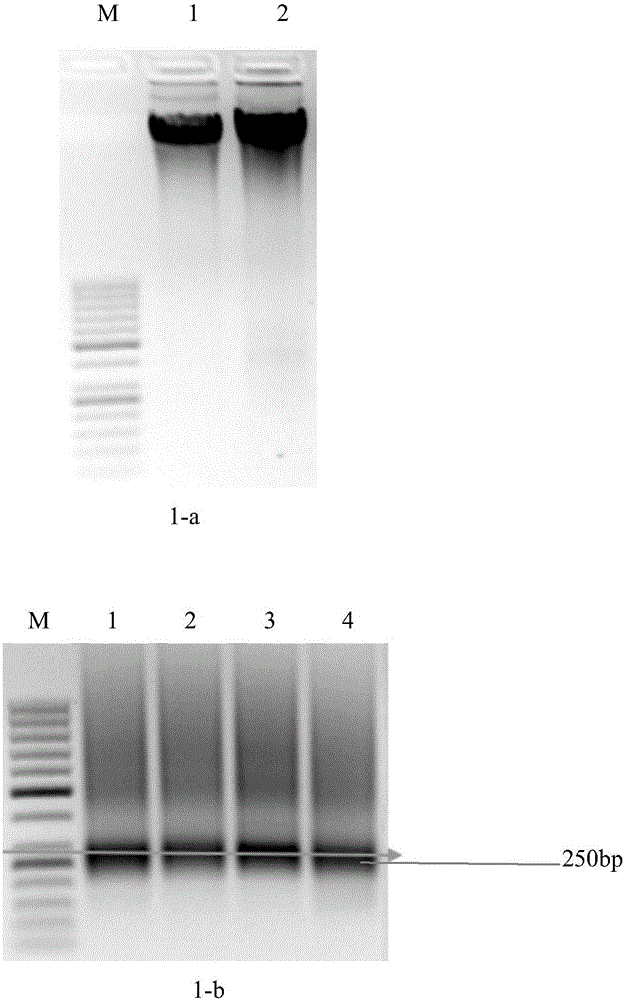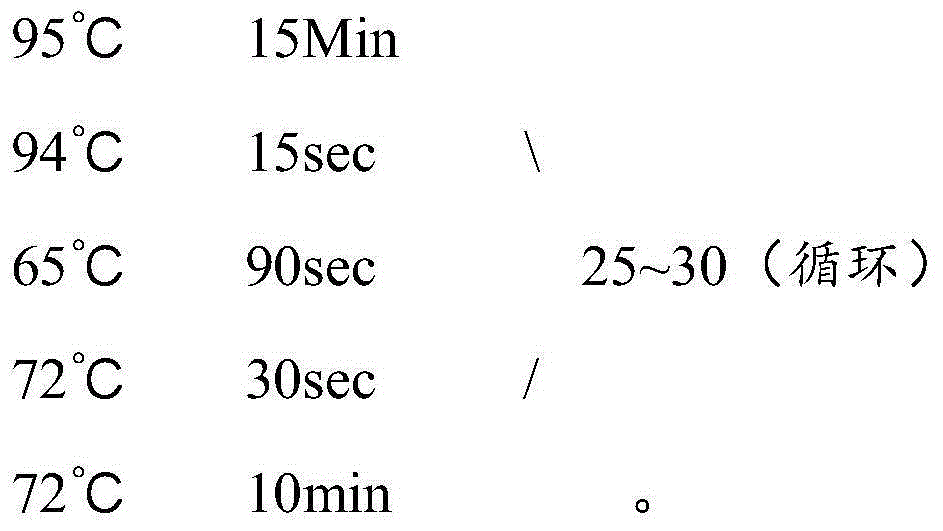Multi-PCR primer and method for constructing leukemia minimal residual disease TCR library based on high-throughput sequencing
A minimal residue and leukemia technology, applied in the field of molecular biology, can solve the problems of labor-intensive, unfavorable clinical standardized detection, interference of mpFC detection, etc., and achieve the effect of improving the detection rate
- Summary
- Abstract
- Description
- Claims
- Application Information
AI Technical Summary
Problems solved by technology
Method used
Image
Examples
Embodiment 1
[0056] Embodiment 1 of the present invention provides a method for preparing a T lymphocyte receptor (TCR) DNA sample, comprising the following steps:
[0057] (1) Collect 10 milliliters (ml) of fresh peripheral blood samples each, and operate according to the instructions of the LymphoPrep kit (Axis-shield, Cat. No. AS1114544UK) to obtain relatively pure PBMCs;
[0058] (2) Use the PureLink GenomicDNA MiniKit (LifeTechnology, Cat. No: K1820-00) kit to extract the genomic DNA of the cells obtained in step (1), measure the concentration and purity of the DNA with Nanodrop2000 (Thermo), and then save the genomic DNA.
[0059] DNA extraction electrophoresis results such as figure 1 -a (see lanes 1-2 for genomic DNA fragments; M is DNAMarker).
Embodiment 2
[0061] Embodiment 2 of the present invention provides a method for constructing a TCR high-throughput sequencing library of minimal residual lesion lesion by using multiple PCR primers of the minimal residual lesion TCR library of leukemia, including the following steps:
[0062] Using the genomic DNA obtained in Example 1 as an amplification template, take TCR primers, and then use QIAGEN’s MultiplexPCR kit (article number: 206143) to configure a multiplex PCR system according to the kit instructions, wherein the TCR primers include upstream primers and downstream primers. The upstream primers are an upstream primer set composed of nucleotide sequences shown in SEQIDNO:1-SEQIDNO:25, and the downstream primers are a downstream primer set composed of nucleotide sequences shown in SEQIDNO:26-SEQIDNO:38.
[0063] Each upstream primer is mixed equimolarly, the total primer concentration is 10 micromolar, and each downstream primer is equimolarly mixed, the total primer concentratio...
PUM
 Login to View More
Login to View More Abstract
Description
Claims
Application Information
 Login to View More
Login to View More - R&D
- Intellectual Property
- Life Sciences
- Materials
- Tech Scout
- Unparalleled Data Quality
- Higher Quality Content
- 60% Fewer Hallucinations
Browse by: Latest US Patents, China's latest patents, Technical Efficacy Thesaurus, Application Domain, Technology Topic, Popular Technical Reports.
© 2025 PatSnap. All rights reserved.Legal|Privacy policy|Modern Slavery Act Transparency Statement|Sitemap|About US| Contact US: help@patsnap.com



